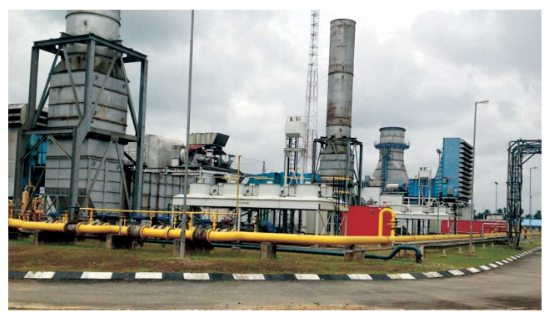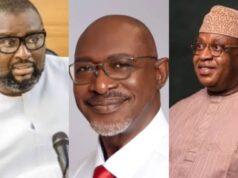Nigerians’ hope for an improved electricity supply has continued to hit a brick wall, especially as the sector faces many complicated and entangled challenges the government has yet to find solutions to. It appears Nigeria’s power problem keeps defying all the government’s efforts to put things in order. Today, many companies are said to have deserted Nigeria due to poor power supply or a lack of it.
When President Bola Tinubu was contesting to become the number one citizen, he promised to ensure a stable power supply and pledged to raise power generation to 15,000 megawatts in his first four years in office.
He said, “On electricity, I will embark on a renewed action-orientated focus and take immediate and urgent action on resolving existing challenges of power generation plants, gas purchasing, pricing, transmission, and distribution.
“My administration’s critical goal is to have 15,000 megawatts distributable to all categories of consumers nationwide to ensure a 24/7 sustainable supply within the next four years,” he was quoted as having said.
In another gathering, Tinubu was emphatic to the extent of asking Nigerians to vote him out if he failed to deliver stable electricity in all homes, including prepaid meters.
He said, “By all means necessary, you must have electricity, and you will not pay for estimated billing anymore. We will honour the promises we make. If I don’t keep the promise and I come back for a second term, don’t vote for me.”
With the nation’s power generation hovering around 4,000 MW when Tinubu made the promise, it could be safely said that he was planning to generate about 2 MW annually to hit 15,000 MW. So far, the current administration said it had succeeded in raising power generation to over 5,000 MW while targeting 6,000 MW before the end of the year. This has become somehow unrealistic, given recent developments in the sector.
For a country of over 200 million people, some experts suggested that the country deserves at least 30,000 MW of electricity. But the country only generates and distributes a third of its installed generation capacity of 13,500 MW.
According to Reuters, despite having the world’s seventh-largest gas reserves, Nigeria produces less than 10 per cent of the electricity generated by South Africa, a country with a population a third the size.
More than 75 per cent of Nigeria’s electricity comes from gas-fired power plants, primarily located in its southern region. The remainder is generated by hydroelectric stations in the north.
JPMorgan Chase, a bank, calculated that Alphabet, Amazon’s cloud arm (AWS), Meta, and Microsoft consumed 90 TWh of electricity in 2022, over 89.9 TWh more than what the most populated country in Africa generated in the same year. This is about 2,500 times the average of 36 gigawatt-hours generated by Nigeria in 2022.
When the president assumed office in 2023, there were expectations that he would consider his promises while selecting his ministers. He had searched among all Nigerians for the man who could deliver the 15,000 MW of electricity to Nigerians before 2027, and he appointed Adebayo Adelabu to head the power ministry. Adelabu’s appointment was greeted with criticisms, especially from stakeholders and experts. To them, the power minister must have the technical know-how to run a technical sector like power, not a banker. Before the man even assumed office, many had predicted that he was going to fail like his predecessors.
Adelabu’s reforms
Mindful of the enormous task before him, Adelabu kicked the ball rolling on his assumption of office. The Ibadan indigene believed that the power sector needed a complete overhaul. He said the reforms should begin by identifying the problems and then proffering solutions.
Adelabu had promised Nigerians that there would be incremental power supply in the country under his watch as the Minister of Power. According to him, the Tinubu administration would do everything possible to make electricity accessible to all. However, there are many challenges hampering the actualisation of these targets.
It could be recalled that Nigerians started 2024 in extreme darkness that lasted three months. Gas companies had backed out of the business due to mounting debts. They shut out gas supplies to power generation companies. The power generation that had been hovering around 4,000 MW dropped drastically below 2,500 MW at a point, impacting the capacity of the distribution companies to supply electricity to consumers. The DisCos, between February and March, apologised to their customers, saying, “We cannot give what we don’t have.”.
The minister confirmed then that the crash in power generation in the first quarter of 2024 was because suppliers stopped making gas available for the generation of electricity due to indebtedness. It was revealed that the debt owed to gas companies rose to $1.3tn as of February 2024, even as the government struggled to close the rising debt figures.
At a press briefing in March, Adelabu laid bare the problems facing the power sector, especially as they concern grid collapses. He noted that the crises in the power sector were complex, culminating in grid collapses.
According to him, this was caused by a shortage of gas, ageing machines in the grid value chain, low capacity to evacuate generated power, and the destruction of power stations in some parts of the country.
“There have been multiple technical operational problems across all segments in the value chain, but they are made complicated by a lack of sustainable liquidity and infrastructure funding, as well as structural misalignment.
“The simple technical operational issues are inadequate shortage of gas supplies and ageing, dilapidated generation machines causing below-optimal capacity utilisation and short supply by the Gencos. Inadequate power evacuation capacity at Genco locations, coupled with unstable and fragile transmission lines, devoid of automated frequency controls, lacking in backup capacity with frequent human disturbances through vandalism and theft,” Adelabu stated.
On the major complications, he said they include persistent liquidity issues coming from inappropriate tariff regimes, poor collections, and inadequate funding of government subsidies leading to huge debts owed to the transmission, generation, and gas supply companies.
“This has restricted investments required for sustaining supply flow, capacity expansion, and infrastructural improvements. It has also not only discouraged lending to the sector by financial institutions, as the sectoral activities are not bankable, but has also made the sector unattractive to new investors,” the minister stated.
Adelabu called for the settlement of existing debts to gas supply and power generation companies, using partly cash payment and guaranteed debt instruments. He also advised increased investments across the value chain for infrastructural improvements, capacity expansion, and transmission automation.
He stressed the need for the diversification of power generation to absorb renewables and facilitate the nation’s journey to its energy transition target.
“We have to encourage a distributed power strategy in conjunction with sub-national government, focusing on an embedded power model to reduce pressure on the national grid and to ensure alternative electricity supply to Discos,” the power minister had stated.
After intense consultations and agreements reached with the gas companies, normalcy was restored in April. But this came at a cost.
Band A tariff hike
On April 3, 2024, there was an uproar over the decision by the Nigerian Electricity Regulatory Commission to raise the tariff payable by those categorised as Band A customers, who were exempted from benefitting from government subsidies. They now pay over N200 per kilowatt-hour instead of N68/kWh with a minimum of 20 hours of electricity supply daily.
The tariff hike triggered protests and condemnation from labour unions, health institutions, education institutions, and manufacturers, who even went to court. Despite the cries, the NERC was adamant, just like the minister.
The Vice Chairman of NERC, Musiliu Oseni, explained that the tariff increase became necessary to enable the GenCos to continue paying their gas suppliers.
He said, “What informed the decision is in the sense that if you look at December 2023, there was an improvement to the quality of service to January, but from January up to date, there was a dip in generation availability.
“What caused that was because there was no review of the tariff. The DisCos cannot be mandated to pay for what they have not been allowed to charge, and in that case, the payment to generation companies has significantly dipped, which affected their ability to maintain their machines and also to pay for gas. And if they are not able to pay for gas definitely, they won’t be able to generate power.
“So, we are at a point where it is clear that if nothing is done to ensure that the tariff is reviewed so that the market can be relatively liquid, the quality of supply won’t improve.”
Speaking on the Band A tariff hike, the power minister disclosed that most people did not realise that an increase in the tariff for Band A would catalyse other investments in distributed renewable energy in rural areas, saying that was the only way private investors would invest their money in the project.
Amid the calls for the reversal of the Band A tariff hike, Adelabu insisted that the policy was attracting local and foreign investors to the power sector, including bankers, who had been avoiding the power sector due to a lack of liquidity.
According to Adelabu, the investors were coming back after they got information about the tariff increase that applies to 15 per cent of customers.
When the Band categorisation was introduced in April, Nigerians complained that Band A customers were being prioritised at the expense of other customers. But Adelabu clarified that before the revised tariff, there was no stimulation of demand as DisCos were rejecting power allocated to them.
He said the revenue collection rate was so low among some customers, so the DisCos were not encouraged to give them enough power.
“But the review of the tariff upward has done one good thing: it has stimulated demand. It is now mandatory for the DisCos to supply Band A consumers a minimum of 20 hours, which means they are taking power. The low level of generation we currently have is eating into our available power for the other bands. But we are ramping up output now. The case of DisCos rejecting power does not exist again. It is in their interest to make sure the infrastructure of other bands is worked upon so that they can be migrated to Band A, and that is more income for the sector. If other bands have low power supply now, it is temporary,” he remarked in May.
Adelabu disclosed that power generation rose to 4,800 MW in May after the Zungeru hydropower plant commenced operations. He promised that 1,200 MW would be added to the 4,800 MW generated in May to raise the generated power to 6,000 MW by September. With this, he believed that there would be an appreciable increase in power supply to satisfy all bands.
Nevertheless, September came without a fulfilment of the promise, though there was an increase in power generation to over 5,000 MW, and many Nigerians testified to the increased power supply in Q3 2024. However, checks by our correspondent confirmed that generation has dropped again, and both Band A and others are lamenting low power supply.
The minister extended the 6GW target till December as he lamented that DisCos were rejecting power supply again. He said that generation peaked at 5,170 megawatts on a day in September; “unfortunately, it had to be ramped down by 1,400 MW due to the inability of the DisCos to pick the supply.” Adelabu lamented the development, saying, “This is really regrettable considering that the government is on course to increase generation to 6,000 MW by the end of the year.”
From September to December, power generation has been dealt a big blow by incessant grid collapses, vandalism, and unpaid debts to GenCos and gas companies. The grid collapsed 12 times in 2024. It has collapsed for about 107 times in the past 10 years. Nigerians and businesses suffer.
Tinubu makes U-turn
Meanwhile, it seems the president is no longer convinced about the actualisation of the promised 15,000 MW by 2027 and now says it was impossible to expect a “magical response “to the electricity challenges.
During the recent visit of German President Frank-Walter Steinmeier, Tinubu said the power infrastructure in the country was old. He described Nigeria as a nation in a hurry, looking for a magical response to the power woes of many years.
“Nigeria, being a nation in a hurry, wants a magical response. But don’t forget, those transmission lines are about 50 to 60 years old. The snags are what we are trying to improve and reduce the possibility of problems,” Tinubu said.
However, the Minister of Power, Adelabu, gave a ray of hope with a promise to add 150 MW to power generation before the year ends.
“We believe that before the end of the year, an additional 150 MW of capacity is going to be added upon completion of the entire pilot phase,” Adelabu said while explaining the implementation of the Presidential Power Initiative agreement with Siemens.
Vandals and bandits wreak havoc
Amid the struggle to ramp up power generation, vandals wreaked havoc, pulling down electricity towers. Transformer cables were also stolen at various locations across the country.
According to the Transmission Company of Nigeria, since January 13, 2024, 128 transmission towers have been attacked and destroyed across Nigeria, with the federal government spending a staggering N8.8bn on repairs.
The Managing Director of the Transmission Company of Nigeria, Engr. Suleiman Abdulaziz, expressed frustration, blaming the police for granting the vandals bail.
“128 towers have been destroyed by vandals or bandits. We have spent about N8.8bn to restore them to functional use,” he said.
It could be recalled that 17 states of the north were thrown into darkness in October due to the vandalised TCN towers along the 330KV Shiroro-Kaduna lines 1&2. It took the intervention of the military, who provided security to fix the power towers.
In Bayelsa State, darkness overshadowed the people for about four months. The entire state was in July thrown into darkness as vandals pulled down a 132 kV double circuit line, which affected over 19 electricity towers in Ahoada, Rivers State, which supply electricity to the state from the national grid.
The state government said it committed a lot of funds to repairing the towers but expressed concerns that about 253 transformers were vandalised within the four-month period.
Saboteurs blamed
In the minister’s view, some cartels and cabals, especially importers of power generators, were those who did not want the electricity sector to function because of their selfish business interests.
He said, “I know that there are cartels and there are cabals in this sector who think their business interest will be negatively affected if we have stable electricity.
“I don’t think stabilising the power sector will render anybody jobless or affect the business interest of anybody. It is a matter of you determining where to be because the business moves. The business world is dynamic.
“There will be frustration because there are some people that do not want this sector to work because of their selfish interest. But we are resolute in this transformation journey, and we will not be intimidated. We will not be cowed into obscurity.”
At the moment, most companies are taking advantage of the new Electricity Act 2023 to generate their own power, especially through renewables. States are taking their destiny into their own hands by also setting up their electricity markets. Adelabu himself advocated regional grids to stabilise the system. He said the grid would continue to collapse unless the infrastructure is upgraded and there is liquidity.
It is hopeful that the country’s power generation will improve the moment state governors take full advantage of the new electricity act, but many are constrained by a paucity of funds.
As the year nears the end, Nigerians are afraid that the darkness they battled earlier this year is here again. DisCos told our correspondent that the low supply was due to low allocation. This, coupled with revelations that suppliers may end gas supply to GenCos due to N2.7tn debt, is creating fears that power generation might dip further in 2025.
2013 privatisation faulted
In an interview with The PUNCH, the National Coordinator of All Electricity Consumers Forum, Adeola Samuel-Ilori, condemned the 2013 power sector privatisation while saying the cabals in the power sector are more powerful than those in oil and gas.
According to him, when the idea of privatisation was proposed by the administration of Goodluck Jonathan in 2012, the expectation was to see the sector blossom without committing Nigerians’ money to it. However, he said the foundation of what he called the ‘contraption of monopolistic privatisation’ was faulty.
“Every step along the privatisation process was faulty since the forum cardinal points to the exercise by the then BPE DG in the person of Dr. Mrs. Bolanle Onagoruwa. Chief among the four were capital layout and technical know-how. It was emphasised in her droplets that those two must not be compromised, as that’s the premise on which the success will be laid. But all was jettisoned, and the largesse was shared among the cronies, and here we are. Hence, the foundations of what you see now were laid, and the roller coaster of unpleasant experiences followed.
“I make bold to say that none of those given the license by the NERC then was qualified, as none possessed either capital layout or technical know-how. The only man with birthed experience who would have been given on merit was Prof. Berth Nnaji, who incidentally was the Minister of Power at the time and resigned his position so as to qualify as the law demanded but never got it. Rather, a businessman, Emeka Offor was awarded the Enugu distribution company that covers the franchise area of both the South-East and South-South axis. The experience of the services provided is better experienced than imagined,” he stated.
Samuel-Ilori added that the government, which pretended to be aloof, later retained 40 per cent equity and left it in the hands of the DisCos, who had 60 per cent without prerequisite experience in the business.
“It’s a result of this that led to the collapse of many of the DisCos, with only four remaining in the hands of their initial investors while seven are back with a government agency like AMCON for insolvency or bankruptcy with owed banks acting as receivers. The only solution is to recover our assets from them and let the government reverse the ownership, run it, and/or invite fresh investors with all the expected indices as genuine businessmen to run it.
“Some of the GenCos that also went through privatisation are also back in the hands of the government. So, what are we still doing with such unprofitable privatisation, playing ostrich to the teeming masses bearing the brunt of their misadventures and shrewd business practices?
“I will suggest that we recover the business into government coffers, run it or reprivatise it to serve the real purpose of privatisation like we witnessed in the communication sector and let there be light,” he submitted.
Minister blamed
Sharing his thoughts, the Executive Director of PowerUp Nigeria, Adetayo Adegbenle, posited that the present leadership of the power sector had been unable to add value to the sector.
He said, “This administration was warned about projects like the Siemens deal because it was never designed to deliver anything meaningful. We also have issues with metering, which is one sure way to improve the ATC & C losses figures and improve collection. We have spent a lot of money on infrastructure upgrading, but we are not seeing results, especially on the national grid.
“We’ve had 12 grid collapses this year alone, and not a single inquiry was made public. We have seen a leadership giving out contracts that could have benefitted the Nigerian people to foreigners, referring to the World Bank loan to supply 1.2 million meters. We have not seen any progress besides empty promises.
“My suspicion is corruption from the key leadership of the power sector. We have political promises of achieving 6,000 MW by December, but we are nowhere close to achieving that. Honestly, I’d rather call for a change of leadership in the power sector. We need people who will put the national interest first. The power sector needs policy-driven leadership.
Asked if he meant the power minister should be fired, Adegbenle replied, “Yes.”.
A professor of energy at the University of Lagos, Dayo Ayoade, opined that the problem in the power sector is too complex, adding that Nigerians will continue to be in darkness unless the fundamental issues of governance are addressed.
“We have very poor governance supervising the sector. The government is pumping money into the electricity sector without any value for the money. There are mounting debts, especially from subsidies. Funds are being mishandled with no accountability. Look at what is happening with the Manbila power project. What are the security agencies doing about vandalism? Who are the beneficiaries of vandalism? Who benefits from the repair of vandalised towers?
“It is unusual that the grid will collapse 12 times a year. It will continue to collapse until we address the fundamental issues of governance,” the don submitted.
Meanwhile, Nigeria’s electricity sector continues to face significant challenges. Despite government efforts, including investments and reforms, persistent issues such as unpaid debts, gas shortages, infrastructure sabotage, and mismanagement have kept the country from realising its potential in power generation. The result is ongoing power blackouts, which severely impact daily life and the economy. To achieve sustainable growth and meet energy demands, Nigeria must prioritise resolving these deep-rooted problems, streamline operations, improve infrastructure security, and attract long-term investments. The government should also be aggressive about generating 30,000 MW of renewable energy by 2030. Without decisive action, the promise of reliable power for Nigerians remains a distant goal.







